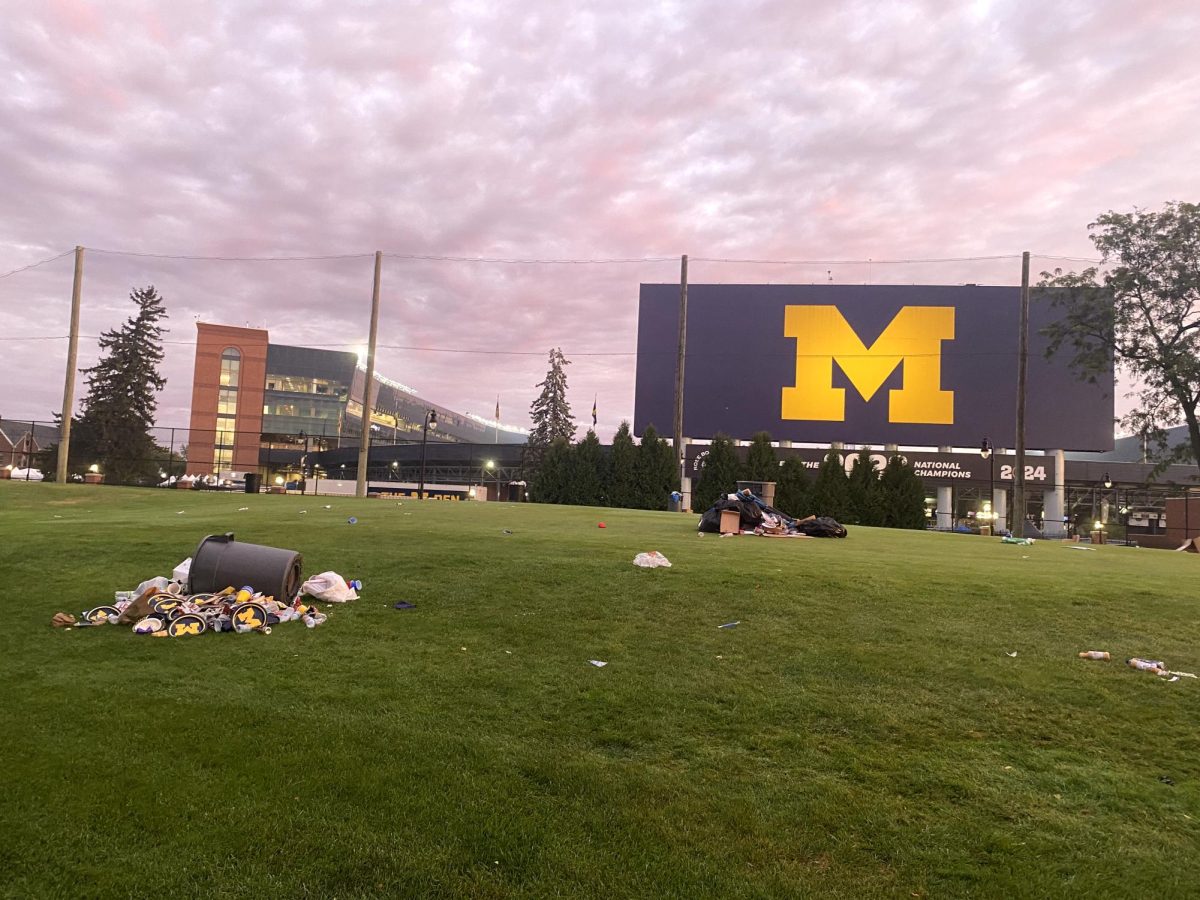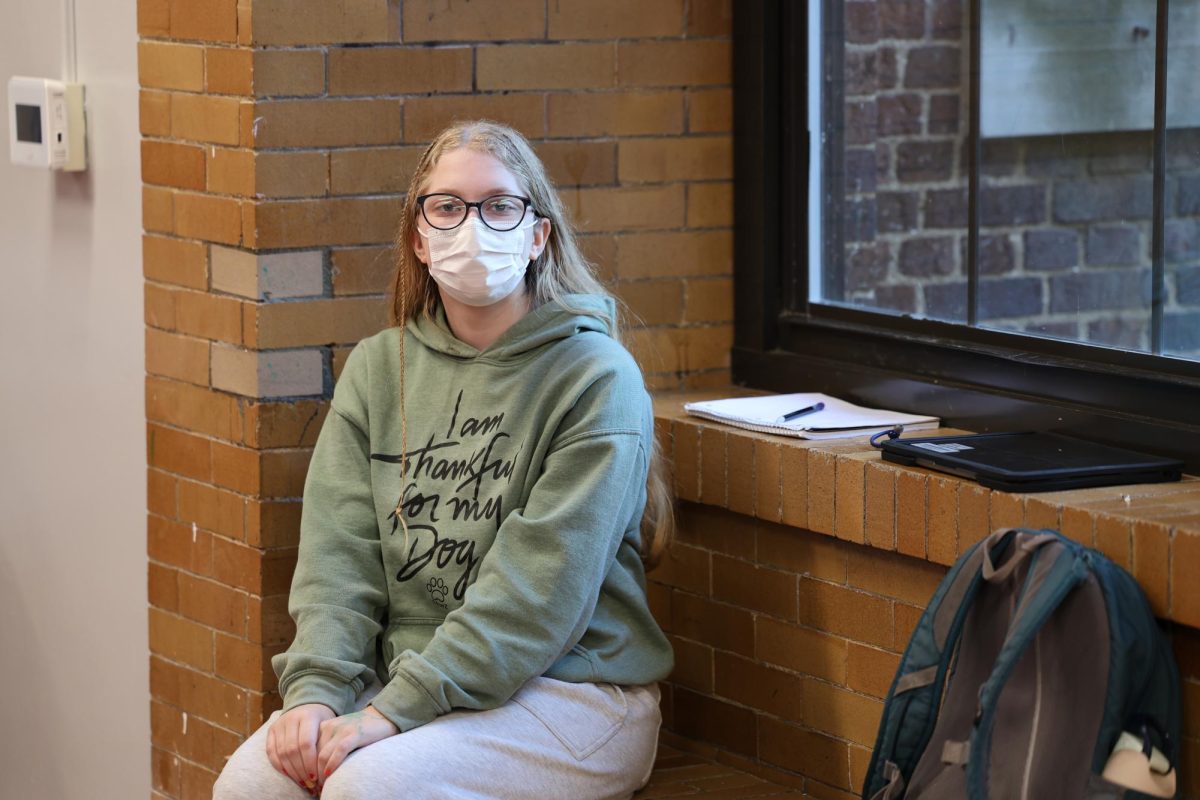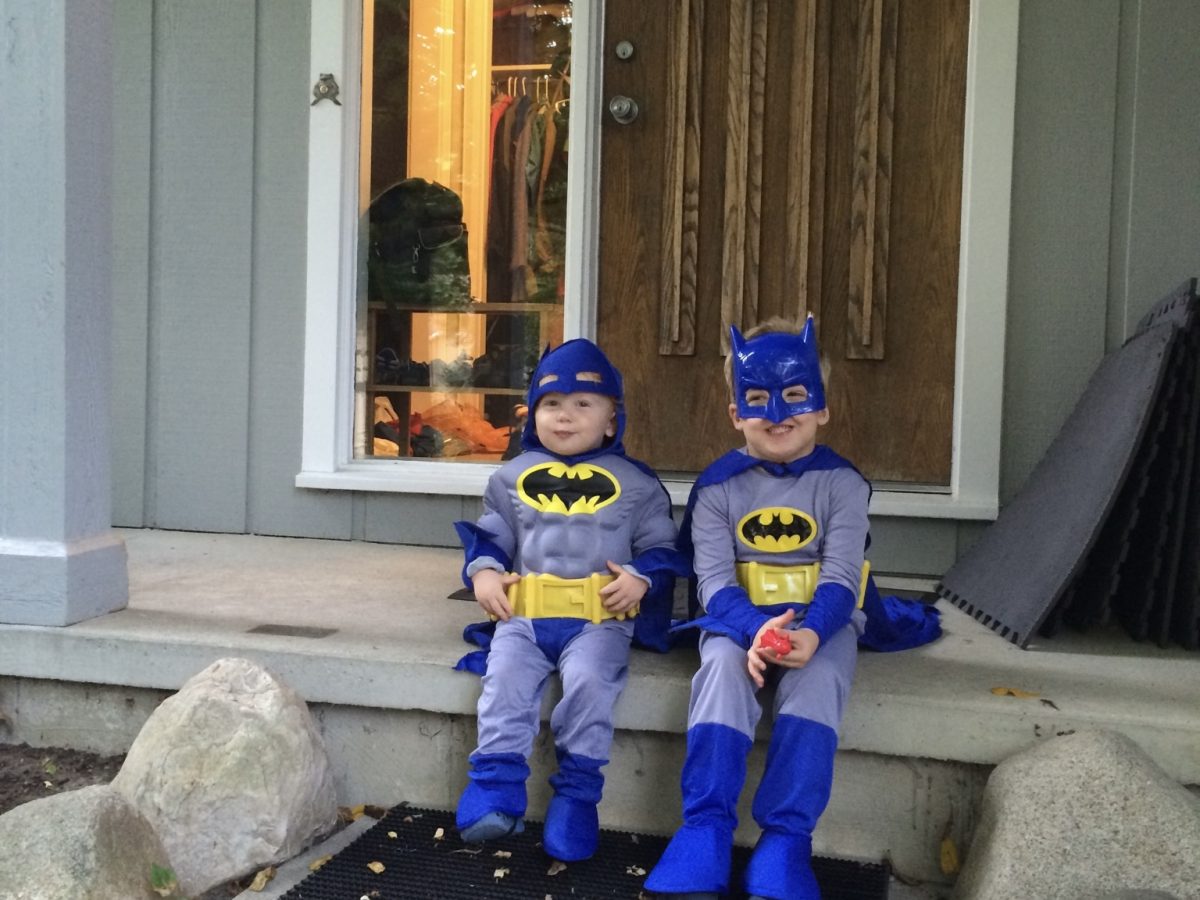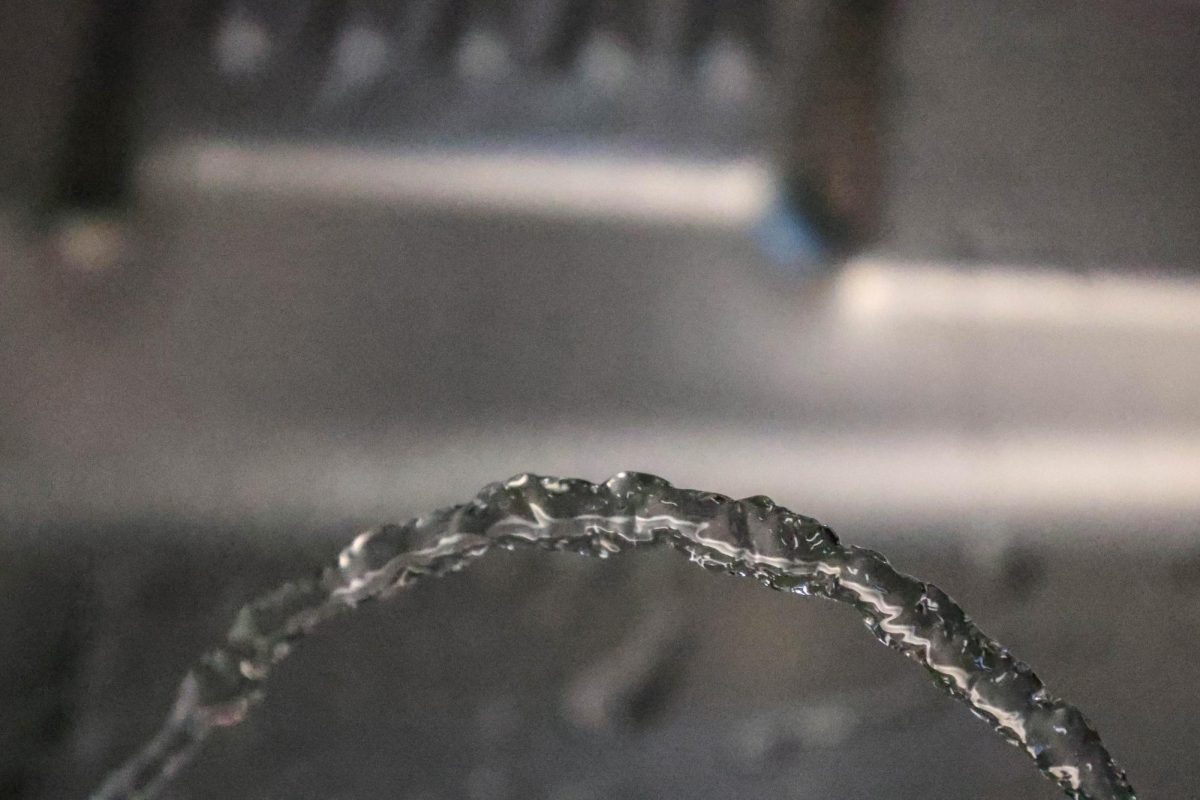Cars of all sizes gather in the Ann Arbor Golf and Outing Club on Saturday morning. Filled with people, food and drinks, devoted Wolverines anticipate the night and game ahead. After a day of partying, crowds of students, families and fans rush into the stadium for the game they’ve been waiting for all week.
This scene seems perfect, but there’s a catch. What happens to the waste left behind from the hours of tailgating? Most people would never know.
But just 12 hours later, members of Huron High School’s Rowing Team arrive at the same golf course. Only this time a totally different scene stands in front of them. Yesterday’s luscious green grass is coated with half empty cans of beer. Trays of corn dogs, pulled pork sandwiches and frosted cupcakes lay splattered on the ground. Trash bins overfill with food, bottles and cans. Cracked TV screens and broken lawn chairs lean against the fence. It is the team’s job to pick up the remains of the last day in two hours before the club opens for golfing.
Ever since I joined the rowing team at the beginning of my freshman year something about these weekly cleanups did not sit right with me. I’m glad our team has a way to fundraise, but it has always seemed unfair that tailgaters generate an enormous amount of waste and leave it on the golf course, some without even the care to place their bottle in a trash can. I often wonder if these tailgaters ever wonder how the trash they leave seems to magically disappear, leaving an open field for the next home game.
However, the problem with tailgating lies deeper than just disgusting things to clean up. Tailgating produces a huge amount of waste that ends up in landfills which in turn contributes to climate change and global warming.
CHS Junior Emily Walker is a Michigan Football fan who has attended many tailgates before. Walker believes that one of the reasons so much waste is produced is that people become intoxicated and act in a careless manner.
“I’ve seen people get drunk and throw their trash wherever they feel like it,” Walker said. “People also prepare a huge amount of food and then often end up throwing a lot of it away or leaving it behind. If people didn’t get as drunk, I don’t think these would be issues.”
According to the U.S Department of Agriculture, “Food loss and waste exacerbate the climate change crisis with its significant greenhouse gas footprint. Production, transportation, and handling of food generate significant Carbon Dioxide emissions and when food ends up in landfills, it generates methane, an even more potent greenhouse gas.”
I believe that many tailgaters simply don’t realize the impact they are having on the environment. While tailgating is a forming crisis for the environment, there are solutions that I believe everyone in our Ann Arbor community can take part in.
Firstly, people should only buy enough food as they will be able to consume. Leftovers can be donated to organizations such as Food Gatherers, an organization that provides free and low-cost meals to those in need of them. Cans, bottles and containers should be recycled. If tailgating sights implemented clear signing with recycling bins much of the landfill waste could be reduced.
According to the Environmental Protections Agency, “Recycling diverts waste away from landfills and incinerators, which reduces the harmful effects of pollution and emission.” Since much of the waste produced at tailgates is cans and bottles, this would be a simple way to reduce the amount of trash produced.
Additionally, people should lessen the amount of alcohol they consume at tailgates. Alcohol is known to impair judgment, and leftover food and valuable items such as TV screens would likely not be left behind if people were thinking more logically. Also, recycling bins would ultimately be useless if not used correctly.
Tailgating is a problem that we cannot wait to act on. However it is not something that we need to stop doing completely. Implementing a recycling system, bringing less food and using the extra food for a good cause would all reduce the negative impact on the environment. It’s time to rally together to help the environment.










